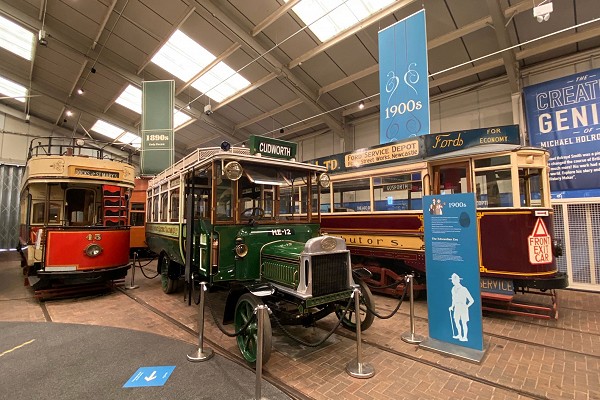The Berlin wall, trams and Crich Tramway museum

Information & photos courtesy of Crich Tramway Museum.
60 years ago, on the morning of the 13th of August 1961, the inhabitants of Berlin awoke to find that two thirds of their city had been isolated from the rest by the tearing up of roads, blocking of railway lines and the erection of barbed wire fencing along the 97-mile border the western sector shared with the German Democratic Republic and the 27 miles that divided West and East Berlin. Within 4 days the barbed wire would be replaced by a concrete wall.
Initially the inhabitants on each side of the Wall were unable to visit or even telephone each other. From the mid 1960’s West Berliners were allowed to visit their relatives in the East at Christmas. In 1971, following negotiations by the four occupying powers the restrictions were relaxed.
Even then those in the East could only cross to the West for work, important family events and if they were pensioners or deemed no further use to the State. In the first two cases the existence of relatives in the East provided insurance that travellers to the West would return.
It is believed that in the 28 years of the era of the Wall about 5,000 people managed to escape to West Berlin, although at least 140 people died in the attempt. The restrictions on East Berliners travelling to the West were revoked on the 9th of November 1989 and reunification of Germany followed the following year. To those who visited Berlin in the 28 years of the Wall it was an interesting city to say the least.

In 1996 a refugee from Berlin arrived at the National Tramway Museum at Crich in Derbyshire. It was an East Berlin “Rekowagen” or rebuilt tram which had been built in 1969. Since arriving at the museum, Berlin Tramways (BVB) No. 223 006-4 has been equipped with a lift to enable people with impaired mobility to enjoy a ride on its demonstration tramway. To mark the 60 years since the building of the wall, the National Tramway Museum will be displaying its Berlin tram at the museum on the 13th of August between 10.00 and 17.30. Volunteers will be on hand to tell the story of the tram and what Berlin was like in those years of the Wall and to operate it for those booked on the Access Tram.















